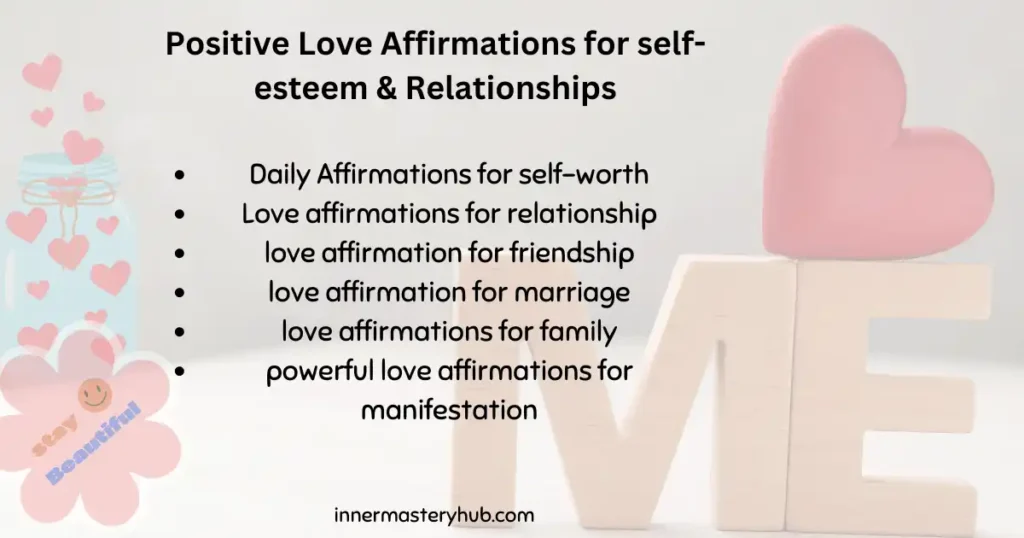11 Ways To Let Go of Resentment Fast and Quick

When resentment lives inside, peace cannot grow. Resentment towards someone you care about feels heavy. It spoils moments, poisons trust, and drags your spirit down. Letting go of resentment is hard work, but it is possible—and necessary.
The urge to protect yourself keeps you stuck, but that same feeling stops healing. To let go of resentment, you must see it, feel it, and choose release over rumination. Research shows that unresolved resentment increases stress, damages relationships, and drains energy.
Why do you not let go of resentment?
Resentment is a response to disappointment, betrayal, or hurt. Anger, resentment, and a sense of unfairness are all mixed. Anger, contempt, disappointment, and disapproval of a person or event combine to form resentment.
Because resentment seems like power, people tend to stick with it. According to psychologists, it’s like a burning flame: hatred won’t go away even if the first action does.
In my own life, I observed that I was replaying old hurts daily following years of dispute with a close friend. I could feel the sting even when we were not in contact. “Resentment as a verb” refers to that tendency of replaying—resentment is something you do, not something that occurs to you.
When there is no closure, no apology, or a belief that letting go means losing your position, resentment grows stronger. Many people find it difficult to let go of their grudges because doing so feels like “giving up” or letting the other person off the hook.
Many times, harbouring discord is like leaving a wound open to keep the suffering alive. However, it’s you who suffers, not the person you’re angry at.
What resentment costs you?
Resentment doesn’t stay in your mind only; it invades your body, your relationships, your future.
- Health toll. Having resentment lowers immunity, causes stress, and increases blood pressure. Forgiveness can lead to better mental health, less anxiety, and less animosity, according to the Mayo Clinic.
- Exhaustion on an emotional level. Ruminating is a waste of energy. You feel overly alert, take minor slights to heart, and exaggerate offences.
- Distorted vision. Not letting go of resentment keeps you stuck in a limited story. You could emphasise someone’s flaws while downplaying their positive qualities. Resentment flourishes on presumptions such as “they did it on purpose,” therefore, “check your stories.”
- Broken ties. Loved ones hear your quiet, sense your isolation, and believe you are to blame. They might back off.
- Lost chances. You avoid forming new relationships or keep old ones from getting better because you are still more concerned with what went wrong than with what could go well.
I recall a time when resentment prevented me from talking to my sibling for two years. I imagined they didn’t care. When we finally met, I learned their silence came from fear and shame, not malice. The years lost could not return, but letting go opened the door to repair.
11 ways to let go of resentment
Here are 11 strategies to help you let go of resentment in relationships with family, partner, and friends.
1. Locate the root of your resentment
What you cannot see, you cannot heal. Identify the event, the unfulfilled need, and the disappointed expectation. Start by determining what you truly dislike: “Are you feeling taken advantage of? Unnoticeable? “Disrespected?”
Track down the first memory that still causes you sorrow by keeping a notebook or reflecting quietly. Resentment can occasionally be concealed by years of minor remarks rather than a single, severe injury.
2. Name your emotions and acknowledge them.
Anger, grief, guilt, and fear are frequently concealed by the idea of not letting go of resentment. You have to let yourself feel to let go. Psychology Today recommends identifying the underlying feelings that anger covers, such as hurt or fear.
For instance: “I am sad because I lost trust,” “I am angry because I felt ignored,” and “I fear loneliness if I forgive.” Feelings lose their force when they are named.
3. Reframe your story (check your assumptions)
You convince yourself things like “I will always suffer,” “They never cared,” and “They meant to hurt me.” Those tales might be somewhat accurate. Posing the question, “What narrative am I telling myself? Is it entirely true?
Reframe: Perhaps their actions were motivated by pain, ignorance, or fear. Perhaps their lack of concern isn’t reflected in their quiet. This softens animosity by altering your narrative, but it does not justify wrongdoing.
4. Show empathy to heal, not to justify.
Consider things from their point of view. Even if you disagree with their behaviour, you can lessen your antagonistic obsession by comprehending their intentions. For instance, if a parent didn’t help you, enquire as to what stresses she was under. What traumas or limiting ideas did he take with him? Empathy is the ability to see complexity rather than unquestioningly trust.
5. Forgive—primarily for yourself
It’s a common misconception that forgiveness means forgetting, freeing the offender, or forgiving the behaviour. Instead, it’s a decision to let go of authority and fury.
I forgave because it felt terrible to bear that grudge, not because their behaviour became acceptable. Giving yourself forgiveness is a gift.
A good place to start is with the phrase “I forgive you, but I choose to move forward.” Or compose a letter of forgiveness that you never deliver.
6. Use symbolic or ritual release.
Forming internal transitions is beneficial to humans. I suggest a ritual: write down your grievance, read it out loud, then tear it up or burn it while declaring, “I choose peace.” I once expressed my feelings to my sibling in writing, then shredded the document. Although it didn’t instantaneously cure us or anything, that deed signalled the end of my daily burden.
7. Set healthy boundaries
Letting go of resentment does not imply remaining open to danger. Boundary violations occurred in many partnerships. When you consistently say yes to things, it means you can’t let go of resentment.
Make a clear decision about what conduct you will tolerate and what you will not. Communicate: “I am offended when you talk like that. If we don’t speak with respect, I want to put that conversation on hold.” Setting limits safeguards your recovery.

8. Limit triggers and exposure
Distance is sometimes necessary. Limit your exposure while you recover if certain situations, people, or discussions regularly make you feel resentful. Do not repeatedly stir the wound.
For instance, cut back on communication until you are strong enough to handle family reunions if they cause resentment. Instead of reinforcing the hurt, use that space to heal.
9. Show yourself warmth and self-compassion.
Not letting go of resentment often comes with shame or self-blame. You criticise yourself for being gullible or forgiving, and you feel weak for still caring. Sending love to the area of yourself that experiences anger or resentment is one way to try the “Love muscle” practice. “I’m doing the best I can,” tell yourself. “I will heal in my own time,” and “I deserve peace.”
If you punish yourself, you will never be able to let go of your bitterness. Therefore, the first step is self-forgiveness.
10. Redirect energy into growth
Resentment hides in idle space. Use your energy to build, not to replay. Focus on your goals, hobbies, relationships, and service. The more forgiving people are, the more satisfied they are with their lives.
11. Therapy, community, counsel
Some wounds are deep. Not letting go of resentment towards loved ones intertwines with betrayal, neglect, or trauma. In this case, professional help can guide you.
Studies show that forgiveness interventions reduce anger, depression, and stress. Mayo Clinic notes that releasing resentment leads to better mental health, lower blood pressure, and improved heart health. Mayo Clinic
You might try counseling, spiritual guidance, a support group, or a coach. You don’t have to walk this path alone.
Putting The Methods Of Letting Go Of Resentment Into Practice
You don’t have to do all 11 at once. Here’s a starter plan you can follow:
Choose one person you resent most now.
Journal to trace the root hurt, name your feelings, and write your own narrative.
Reframe and implement empathy in daily life.
Do one symbolic release (letter, ritual).
If needed, set one boundary at a time to protect your healing.
Fill your time with growth—art, nature, and relationships.
Reach out to someone trustworthy or a professional.
Over weeks, revisit. You may find the load is lighter, your heart softer, your energy freer.
Summary and Invitation
You should be relieved of the burden of not letting go of resentment against someone you care about. The recurring repetitions, the stories you create, and the unfulfilled expectations are all part of the issue, not simply the act that caused you pain. The problem is that you are more affected by the harm than they are.
Self-awareness, limits, empathy, ritual, letting go with compassion, and outside assistance are the answers. The 11 methods listed above provide you with a path: Find the source, label emotions, reframe, empathise, forgive, perform symbolic release, establish boundaries, restrict triggers, be compassionate, put growth back into your focus, and get help.
It’s okay if you don’t get full release right away. Your goal should be growth rather than perfection.
Frequently Asked Questions About Letting Go Of Resentment
Why am I not able to let go of resentment toward someone I love?
You feel resentment when expectations were broken, trust was violated, or you felt used or unheard. Resentment arises from perceived injustice, disappointment, or chronic unmet needs. Resentment is a mix of anger, disappointment, and disgust.
How long does it take to let go of resentment?
It varies. Letting go is a process that could take weeks, months, or even years—especially when wounds run deep—patience and consistent practice matter more than speed.
What role does setting boundaries play?
Boundaries prevent future harm. They protect your emotional safety. When you say “no” to repeated hurt, you avoid re-injury and give yourself space to heal.
How can I manage triggers that make it hard to let go of resentment?
Recognize triggers (words, settings, reminders). Prepare a response—pause, breathe, reframe. Use distraction or grounded practices. Over time, triggers lose their grip.
Is therapy effective in releasing resentment?
Yes. Therapies like cognitive behavioral therapy, forgiveness intervention, EMDR, or guided counseling have shown effectiveness in reducing anger and letting go of resentment.
Can I forgive myself for nurturing and not letting go of resentment?
Absolutely. Self-judgment deepens bitterness. Self-compassion lets you accept your struggle and move forward. Forgiving yourself is essential to actual release.
Is holding resentment harmful to me?
Yes. Chronic resentment raises stress, harms mental health, weakens relationships, and may increase blood pressure. Studies show that forgiveness reduces anxiety and improves well-being.
Can I let go of resentment without forgiving the person?
Yes. You can release bitterness internally—stop ruminating, shift your meaning, set boundaries—even if you don’t restore the relationship or receive an apology. Forgiveness helps, but release is possible on your own.
What if the person who hurt me doesn’t admit wrongdoing?
You still can let go. You choose to release your resentment: empathy, reframing, and acceptance help. You don’t need their apology to heal yourself.
Does letting go mean forgetting the pain?
No. Letting go means you stop letting the past control your present. You may remember what happened, but you no longer let resentment reside in your heart.






